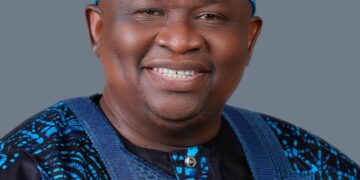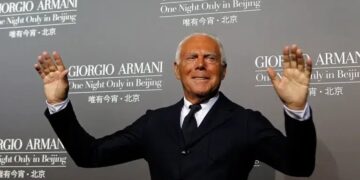![]()
– Adejola Adeyemi Crown
In Yoruba land, to be a king is not simply to sit on a throne—it is to step into an ancient rhythm, one that ties the living to the dead, the earth to the heavens, and the people to their gods.
The Yoruba king, or Oba, is not viewed as a political figure alone. He is called Aláṣẹ Ẹkejì Ọ̀rìṣà, which means “the one who wields authority, second only to the gods.” This title is not poetic—it is a deeply spiritual affirmation of how the Yoruba regard kingship.
From the moment a king is chosen to his last rites, he is no longer seen as a mere mortal. His body, words, and presence take on a sacred meaning. And this journey—his making and his transition—is carefully guided by a mixture of culture, tradition, and ritual.
When a reigning Oba passes on, he is not said to have died. In Yoruba expression, Oba wá já—meaning “the king has ascended.” His death is veiled in sacred silence, and no public announcement is made until certain rituals are performed.
Across towns like Oyo, Ijebu Ode, Ile-Ife, Ilesa, Abeokuta, Ondo, and Ado-Ekiti, the process begins by informing only the inner circle—chiefs, palace priests, and spiritual guardians. This marks the beginning of a powerful sequence of events: the end of one divine cycle and the preparation for another.
The selection of a new king begins with the Àfọ̀bájẹ́—the kingmakers. These are senior chiefs, traditional titleholders, and spiritual elders who hold the responsibility of screening and nominating a successor.
In each town, only specific ruling houses, known as Ilé Ọba, are allowed to produce candidates. For instance, in Ijesaland, the Owa Obokun Adimula is chosen from among designated royal families whose ancestral ties date back to Obokun, the son of Odùduwà.
In Oyo, the Alaafin is selected through a consultation process by the Oyomesi, led by the Bashorun, while in Ijebu Ode, the Awùjalẹ̀ of Ijebu land is chosen by the Osugbo Council, also known as Ogboni in some areas.
In all these communities, the role of Ifá—the Yoruba divination system—is central. The kingmakers do not pick based on politics or popularity. They consult the Ifá oracle to ask, “Who among the princes has been chosen by the gods?” The outcome of this spiritual inquiry is final and binding.
Once a candidate is selected, he becomes Oba-Elect, and the sacred process of rebirth begins. This stage is known as Ìpẹ̀bí or Ìlọfì, depending on the town. It is a time of seclusion and spiritual grooming, lasting days or even weeks.
During this period, the king-elect is cut off from the public and taken to a sacred chamber where he is taught the customs, laws, spiritual duties, and taboos—called Ẹ̀wọ̀—that he must never violate.
In Ijesaland, the Owa-elect undergoes traditional bathing rituals with special herbs (Ẹ̀wẹ̀sè) meant to purify his soul. He is trained in sacred chants (Oríkì), royal speech, and the symbolic language of the people.
He is shown the spiritual emblems of the throne—the beaded crown (Adé), the horsetail whisk (Irukẹ̀rẹ̀), the royal staff (Ọ̀pá Àṣẹ), and sacred beads (Ìlèkè Ọba). These are not decorations; they are embodiments of ancestral spirits.
In Ijebu, the Ìpẹ̀bí rites for the Awùjalẹ̀ are considered highly secretive and spiritually intense. It is said that not even the highest chiefs can enter the chamber where the rites are held. In Oyo, the Alaafin-elect may visit the shrine of Ṣàngó, the thunder god and former Alaafin who was deified. In Ile-Ife, the Ooni-elect is taken through ancient groves where the spirits of the ancestors are invoked to accept him into their fold.
On the day of coronation, the king-elect emerges, spiritually reborn. The sacred crown, Adé Àyè, is brought out. It may have been worn by dozens of ancestors, and it is believed to carry the spirit of the land. Before it touches the king’s head, it is ritually awakened with incantations and sacrifices. As the crown rests on his head, he ceases to be a man. He becomes the voice of tradition. He is now Kabiyesi—“He whose authority cannot be questioned.”
With the crown also comes responsibility. The Oba is now the spiritual gatekeeper. He must offer prayers at shrines, settle disputes with wisdom, observe sacred taboos, and keep the customs of the land intact.
But just as the king is crowned in mystery, he must also leave in mystery.
When a Yoruba king joins the ancestors, his body is never treated like that of an ordinary man. In Egba land, the Aláké of Ẹ̀gbáland is buried within the palace grounds, but only after several secret rituals are performed. In Ondo and Akure, royal funerals include days of drumming, ancestral invocation, and performances by Ẹ̀gúngún masquerades—believed to be spirits of the dead. The dead king is bathed with herbs, dressed in royal attire, and may be buried with symbolic items such as beads, staff, or relics believed to aid his passage into the ancestral realm.
Sometimes, different parts of his body are buried separately or committed to the elements—one part to the forest (igbo), one to the river (omi), and one to the palace.
This ritual dismemberment is symbolic. It shows that the Oba belongs to the entire cosmos—earth, water, fire, and wind. He must be returned fully to the forces from which he was drawn.
In towns like Ado-Ekiti, the Oba’s funeral may last up to a week, filled with chants, gun salutes, sacrifices, and spiritual rites. Royal drums such as the Bàtá, Gángan, and Ìyá-Ilù are beaten day and night to communicate with the spirit of the departed king.
In recent years, the realities of modern religion have found their way into these traditions. Some kings now request Christian or Islamic funeral prayers. While these may be observed publicly, many Yoruba communities insist on performing the traditional rites privately, even if quietly. The belief remains strong: no matter your religion, you cannot be crowned the Aláṣẹ Ẹkejì Ọ̀rìṣà and be buried without rituals. It would be a break in the chain—a dishonour to the ancestors.
The installation and burial of a Yoruba king is not just a cycle of leadership. It is a deeply spiritual contract—between the land and the gods, between the people and their past. To be king is to be chosen by destiny, trained by tradition, and returned to eternity with honour.
Whether it’s the Ooni of Ife, Alaafin of Oyo, Owa Obokun of Ijesaland, Awùjalẹ̀ of Ijebu Ode, Aláké of Abeokuta (Egba), or the Deji of Akure, one thing binds them all: they are kings not only in the eyes of men but in the courts of the ancestors.
To rise as king is to enter a covenant. To die as king is to return to source. And between those two sacred points lies a life governed not by power—but by culture, tradition, and ritual.
Adejola Adeyemi Crown, Publisher of Tropic Reporters adejolanews@gmail.com

























